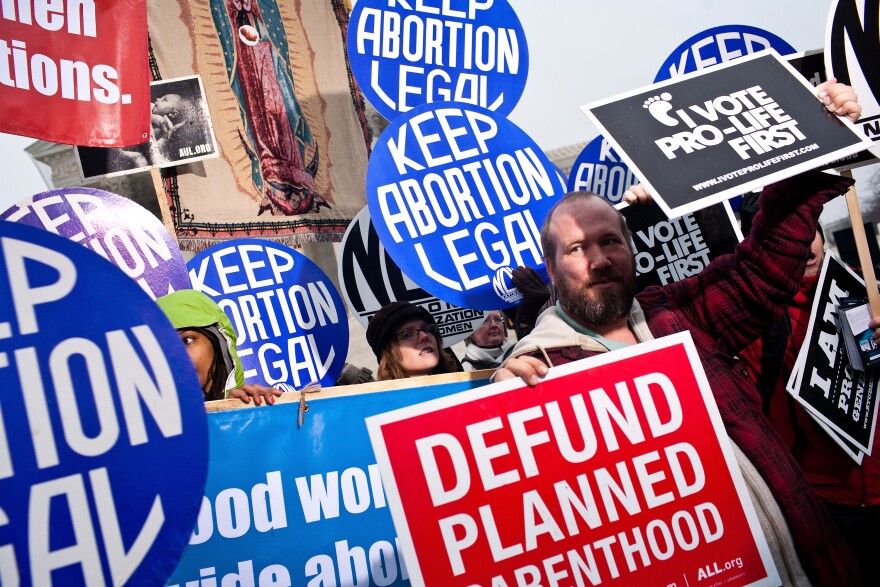Wisconsin Attorney General Brad Schimel met Tuesday's deadline for asking the U.S. Supreme Court to review a state abortion law, insisting the state should be able to enforce it.
The law Wisconsin Republicans passed in 2013 requires abortion providers to have admitting privileges at a nearby hospital.
Two federal courts have declared the law unconstitutional.
The group Wisconsin Family Action lobbied for the law. President Julaine Appling says, ultimately, requiring that doctors who perform abortions have admitting privileges at a nearby hospital should an emergency occur is about protecting the well-being of women.
However, after the state passed the law, Planned Parenthood of Wisconsin sued. Mel Barnes represents the group, and she says the law has nothing to do with women's health. Barnes says, "The intent of this law is to put obstacles in the path of women seeking safe, legal abortion care in Wisconsin."

If the U.S. Supreme Court decides to hear the case, UW-Madison constitutional law expert Howard Schweber says those are the arguments it will hear.
Schweber says, "The real question comes down to is, is this a good faith health protective regulation in the first place, or a disguised effort to impose an undue burden on the exercise of the right."
Schweber says the 7th Circuit Court of Appeals decided, in a two-to-one ruling, the Wisconsin law requiring doctors who perform abortions to have admitting privileges was a disguised effort to impose an undue burden on women seeking abortion. "The 7th Circuit used very unsparing language in saying we don’t believe a word of Wisconsin’s argument. They were quite scornful of Wisconsin’s claims that it was trying to protect health," he says.
Judge Richard Posner, a Reagan appointee, wrote that opinion for the majority.
Mel Barnes of Planned Parenthood says Posner, and the lower federal court before him, got it right. "As the judges who have heard this case have repeatedly found, this law does nothing to advance women’s health in the state. It’s not about women’s health. It’s about playing politics," Barnes says.
Wisconsin Family Action's Julaine Appling says Judge Posner got it wrong. "I think it’s impertinent on his part to believe he knows the minds and motives of the people that are representing the majority of the people here in our state," she says.
"The Republicans that passed that law had a solid majority, there was unanimity amongst them, to put that type of protective measure in there for women, and I think it’s wrong for the judges to presume they know better than the people and those that we elect to represent us as to why we’re doing what we’re doing," Appling says.
Appling and Wisconsin Attorney General Brad Schimel may find the recent death of Supreme CourtJustice AntoninScalia to be problematic for their case, according to Schweber. He says, "Scalia was the anchor of a five member majority that strongly favored the right of states to regulate abortion, and frankly, repeatedly and frequently expressed doubt the validity of the right to abortion as expressed in Roe vs. Wade in the first place."
If the existing high court takes Schimel’s case, Schweber says, there are two likely outcomes.
"In the event this case (goes) to the Supreme Court while there were only eight justices and the outcome was a four to four split, then the 7th Circuit’s ruling would stand and this law would be struck down," Schweber says. "In the event this case goes to the Supreme Court with only eight justices and justice Kennedy votes to uphold the law so we get a five-three division, then, of course, the law would be upheld, but court watchers tend to think that’s not a terribly likely outcome."![]()
Schweber says we probably won’t know if the Supreme Court has decided to hear the case until the end of this term in June.
One other possibility is that the high court could combine several abortion-related cases.
Schweber says if Schimel v. Planned Parenthood of Wisconsin is combined with challenges to more stringent abortion regulations, like those in Texas, the court could let all of their lower court rulings stand.




